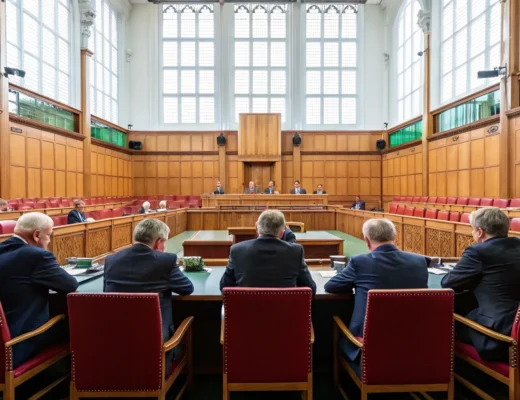A group of retirees in the United States will soon be without Social Security benefits, according to an announcement from the Social Security Administration (SSA). The SSA stated that some retirees will not receive their Social Security benefits due to specific eligibility issues. Many Americans set aside earnings during their working years to ensure a steady income stream after retirement.
With inflation driving up prices and interest rates remaining high, many retirees are more dependent on Social Security than ever before. The SSA expects approximately 64 million nationwide to receive Social Security benefits in 2024. However, not all seniors will be as fortunate.
The SSA reports that 3.3% of older Americans, classified as “never recipients,” will never collect benefits if they are eligible or older. According to the SSA, 88% of people classified as “never beneficiaries” are infrequent workers or late-arriving immigrants. Late-arriving immigrants arrive in the United States after age 50 and have not earned enough money to be eligible for benefits.
Due to their shorter working lives, they often do not make the minimum Social Security contributions needed to qualify. Infrequent workers are another group that has difficulty qualifying. These individuals may not have made enough contributions to the system to qualify for Social Security because they may not have had steady work throughout their lives.
Social Security eligibility challenges
Some Americans who work in non-covered industries, such as government jobs, may rely on pensions or other retirement income instead of Social Security, even with sufficiently high incomes. The “never beneficiaries” population is also increased because some people who qualify for benefits never live long enough to receive them.
Americans classified as “never beneficiaries” are likelier to become poor in retirement. Social Security statistics show that 54.3% of “never beneficiaries” live below the poverty line, compared to just 5.8% of those who receive benefits. This striking disparity emphasizes how crucial these payments are to keeping seniors out of poverty.
Americans could also be prevented from receiving the benefits to which they are legally entitled if they make mistakes when applying for Social Security benefits. Navigating the Social Security system can be challenging due to the dozens of rules that govern eligibility and benefit calculations. One mistake in the filing procedure might lead to costly errors, resulting in Americans losing potentially significant benefits over their lifetimes.
One popular yet controversial tactic to optimize benefits is to postpone receiving Social Security. Monthly benefits increase by 8% every year when delayed, making them a tempting alternative for individuals seeking to boost their retirement income. However, this strategy might backfire if the person dies before receiving the postponed benefits or if there are interim changes in the Social Security system.
Furthermore, bigger benefits could lead to higher taxes, which might negate the advantages of waiting.







